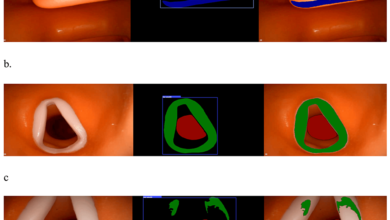Tesla’s Strategic Pivot to Artificial Intelligence

Tesla, Inc., traditionally recognized as a leader in the electric vehicle market, is transforming towards becoming a frontrunner in artificial intelligence (AI) and robotics. This strategic redirection is highlighted by CEO Elon Musk’s recent announcement of an ambitious investment totaling approximately $10 billion in AI capabilities this year, specifically focusing on training and inference AI. This initiative positions Tesla not merely as an automotive manufacturer but as a pioneering AI enterprise.
Financial and Strategic Implications of Tesla’s AI Investment
Elon Musk’s disclosure reveals a significant allocation of resources towards enhancing AI functionalities within Tesla’s product lineup, particularly in autonomous vehicles. The investment underscores a broader vision of Tesla’s automotive products serving as platforms for advanced AI applications, collecting vast amounts of data to fuel AI training and deployment. This approach suggests a strategic pivot that could substantially alter Tesla’s valuation and market positioning.
Tesla’s AI Objectives: Beyond Automotive Boundaries
Tesla’s substantial expenditure on AI is not an isolated strategy but part of a broader initiative to integrate AI across its offerings, including energy solutions and storage systems. Industry analysts, including Cathie Wood of Ark Invest, project that Tesla’s AI-driven technology could dominate emerging markets such as autonomous taxi platforms, which are anticipated to generate significant revenue by 2030. This aligns with Musk’s vision of transforming Tesla into a global leading entity in the AI and robotics sectors.
Herbert Ong explores Tesla’s $10 billion bet on AI in his latest video:
Analysis of Market Trends and Investor Implications
The scale of Tesla’s investment in AI places it at the forefront of a transformative movement within the technology and automotive industries. For investors, this shift indicates a potential reevaluation of Tesla’s business model from a traditional car manufacturer to a comprehensive AI-driven company. This strategic realignment may influence future revenue streams and market capitalization, positioning Tesla as a competitive player against conventional automotive companies and tech giants.
Technological Innovations and Competitive Edge
Tesla’s AI strategy involves the deployment of sophisticated AI chips within its vehicles, transforming each car into a data collection node. This data is instrumental in training AI systems to enhance vehicle autonomy and operational efficiency. The company’s focus on developing proprietary AI chips and software in-house provides it with a unique competitive advantage by reducing reliance on external suppliers and enhancing the integration of AI functionalities.
Long-Term Business Prospects and Market Potential
Tesla’s aggressive expansion into AI and robotics suggests its potential to lead in next-generation AI applications beyond the automotive industry. The company’s strategy to harness AI’s capabilities in developing autonomous networks and other advanced technologies may open new avenues for growth and innovation. For serious investors and technology experts, understanding the depth and implications of Tesla’s AI investments is crucial for assessing its long-term market potential and investment viability.
In conclusion, Tesla’s pivot towards artificial intelligence and robotics represents a strategic evolution of its business model, aiming to redefine its role in the technology and automotive sectors. This move is geared toward maintaining leadership in electric vehicles and setting the stage for significant advancements in AI applications, marking Tesla as a central figure in the future landscape of technology and transportation.



